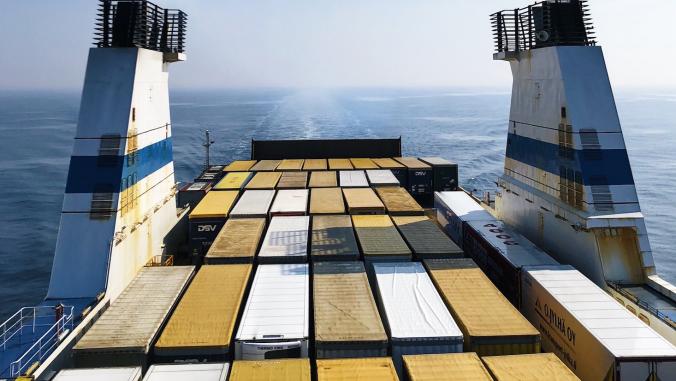Energy Star Specs for Efficient Servers Released
As the EPA unveils its long-awaited draft specifications for energy efficient servers, a new survey reveals European IT chiefs are happy to pay more for greener products.
The US Environmental Protection Agency (EPA) last week released its much-anticipated draft Energy Star standard for computer servers and invited feedback on the proposed criteria.
The draft document sets out the product criteria and testing procedures that manufacturers will have to submit to if they want their servers to carry the Energy Star label.
The Energy Star label is used widely on a raft of electronic products, including PCs and TVs, and informs customers that the product is amongst the most energy efficient models on the market. Servers have thus far not been included in the scheme due to the difficulties associated with comparing different servers and workloads, a problem the EPA hopes to have now resolved with its new standard.
The specifications cover definitions for those products that can carry the label, minimum standards for power supply efficiency and the amount of energy drawn when the server is idle, power management and virtualization requirements, energy efficiency performance benchmarks and standards for measuring and reporting energy use.
In a letter to stakeholders, Energy Star product development manager Andrew Fanara urged those interested in the contributing to the consultation process to file responses by the 14 March deadline.
"EPA is interested in finalizing this specification as quickly as possible while allowing for sufficient stakeholder input and ensuring that the finished product is technically sound and consistent with Energy Star program principles," he wrote. "EPA's intent for a swift development process is in response to the growing interest and demand for a server specification from data center operators/IT purchasers, several governments, and utility and regional energy efficiency programs."
He added that the new specification would be covered by last years agreement between the E.U. and U.S. that sees the Energy Star label also used in Europe.
The news specification came on the same day as new research from IT giant Lenovo and components manufacturer AMD revealed that eight out of 10 IT managers in the U.K., France and Germany would be willing to pay a small price premium for a more energy efficient product.
The survey of almost 650 IT executives at midmarket firms employing between 500 and 2,500 people found that the overwhelming majority of IT purchasers accept that paying a premium for energy efficient PCs and servers delivers cost savings in the long run.
However, while IT managers are paying closer attention to energy efficiency the study also confirmed that functionality and price are still the top factors influencing purchasing decisions. It also revealed that concerns over energy efficiency are a relatively recent phenomenon with 60 percent of respondents admitting their current PCs do not have explicitly green or energy efficient credentials.
Milko van Duijl, president for Lenovo in Europe, said there was a need to further raise customer awareness of the "palpable operational benefits" the latest generation of energy efficient IT systems can deliver, most notably in the form of cost savings.
James Murray is the editor of BusinessGreen.
The draft document sets out the product criteria and testing procedures that manufacturers will have to submit to if they want their servers to carry the Energy Star label.
The Energy Star label is used widely on a raft of electronic products, including PCs and TVs, and informs customers that the product is amongst the most energy efficient models on the market. Servers have thus far not been included in the scheme due to the difficulties associated with comparing different servers and workloads, a problem the EPA hopes to have now resolved with its new standard.
The specifications cover definitions for those products that can carry the label, minimum standards for power supply efficiency and the amount of energy drawn when the server is idle, power management and virtualization requirements, energy efficiency performance benchmarks and standards for measuring and reporting energy use.
In a letter to stakeholders, Energy Star product development manager Andrew Fanara urged those interested in the contributing to the consultation process to file responses by the 14 March deadline.
"EPA is interested in finalizing this specification as quickly as possible while allowing for sufficient stakeholder input and ensuring that the finished product is technically sound and consistent with Energy Star program principles," he wrote. "EPA's intent for a swift development process is in response to the growing interest and demand for a server specification from data center operators/IT purchasers, several governments, and utility and regional energy efficiency programs."
He added that the new specification would be covered by last years agreement between the E.U. and U.S. that sees the Energy Star label also used in Europe.
The news specification came on the same day as new research from IT giant Lenovo and components manufacturer AMD revealed that eight out of 10 IT managers in the U.K., France and Germany would be willing to pay a small price premium for a more energy efficient product.
The survey of almost 650 IT executives at midmarket firms employing between 500 and 2,500 people found that the overwhelming majority of IT purchasers accept that paying a premium for energy efficient PCs and servers delivers cost savings in the long run.
However, while IT managers are paying closer attention to energy efficiency the study also confirmed that functionality and price are still the top factors influencing purchasing decisions. It also revealed that concerns over energy efficiency are a relatively recent phenomenon with 60 percent of respondents admitting their current PCs do not have explicitly green or energy efficient credentials.
Milko van Duijl, president for Lenovo in Europe, said there was a need to further raise customer awareness of the "palpable operational benefits" the latest generation of energy efficient IT systems can deliver, most notably in the form of cost savings.
James Murray is the editor of BusinessGreen.





